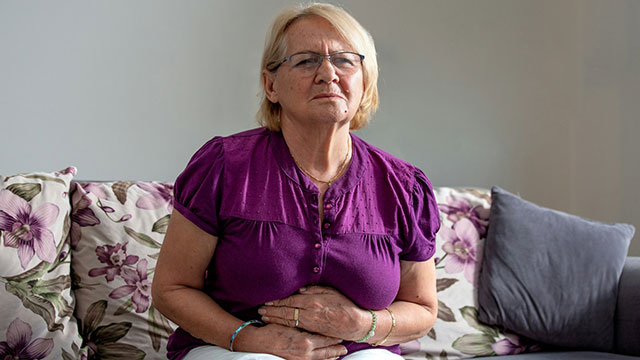Where’s the outrage? Today’s enfeebled media fails to hold Danone accountable in listeria scandal
 The reaction to the recent Silk and Great Value plant-based dairy recall has been perplexing, to say the least. Despite three confirmed deaths now linked to the listeria outbreak, the first fatality occurred back in August 2023 – almost a year before the official recall on July 8, 2024.
The reaction to the recent Silk and Great Value plant-based dairy recall has been perplexing, to say the least. Despite three confirmed deaths now linked to the listeria outbreak, the first fatality occurred back in August 2023 – almost a year before the official recall on July 8, 2024.
Yet, there has been little public explanation for this delay. Both the Public Health Agency of Canada (PHAC) and the Canadian Food Inspection Agency (CFIA) have been responsive and transparent in their investigation, identifying Danone’s Pickering Plant as the source.
However, aside from a vague statement released by Danone in July, the public remains largely in the dark. The company’s name has scarcely been mentioned, raising many unanswered questions.
So far, cases have been reported in Ontario, Quebec, Alberta, and Nova Scotia, with all three fatalities occurring in Ontario. This scenario is reminiscent of the 2008 listeria crisis involving Maple Leaf Foods, albeit on a smaller scale.
 Getty Images |
| More from Sylvain Charlebois |
| Stretchflation is the latest threat to your grocery bill
|
| $500M settlement in bread price-fixing scandal outrageous
|
| You’ll soon be eating cloned meat without knowing it
|
During the 2008 recall, Maple Leaf Foods was responsible for the deaths of 23 Canadians, with 57 confirmed cases of listeriosis. The first cases were reported just weeks before the recall, not months.
The recall itself was massive, targeting over 200 cold-cut products and receiving intense scrutiny from both the media and government officials. The aftermath led to significant changes in Canada’s food safety surveillance system, including the addition of new CFIA inspectors.
Michael McCain, then CEO of Maple Leaf Foods, issued multiple apologies, most notably on August 18, 2008, when he stated that he didn’t need lawyers or accountants to “do the right thing.”
The 2008 crisis became one of Canada’s most well-known risk communication and food safety case studies. Media coverage was relentless, with reporters asking tough questions and demanding transparency from Maple Leaf Foods about what was happening at their North York plant. A class-action lawsuit which followed was settled months later for $27 million.
In contrast, the current situation with Danone has received far less attention. The 2008 recall involved a highly Canadian company, Maple Leaf Foods, at a time when Canadian-made food safety incidents were rare. Danone, a foreign company, might not evoke the same level of scrutiny or public concern.
Additionally, the media landscape has changed significantly since 2008, with fewer journalists available to cover such stories due to industry-wide cuts and layoffs. One could argue that the 2008 media environment, with its more robust coverage, played a crucial role in holding Maple Leaf Foods accountable.
Another factor might be this year’s busy news cycle, dominated by the Olympics and the U.S. Presidential election. However, it’s worth noting that 2008 also had its distractions, including the Beijing Olympics and Barack Obama’s historic campaign to become the first black president. Despite these events, the listeria crisis still dominated headlines for weeks.
It’s also possible that Canadians have become more desensitized to food safety issues over the years. But desensitization doesn’t diminish the importance of transparency and accountability, especially when lives are at stake. Canadians deserve to know how this recall could have been prevented and why it took nearly a year after the first casualty to issue the recall. The timing of the recall, right in the middle of summer when fewer people pay attention to the news, only adds to the frustration.
Now, as Silk plant-based milk products slowly return to store shelves, the number of those sickened continues to rise, and the death toll may increase further. Hearing directly from Danone about how they plan to prevent future incidents would go a long way in restoring public trust.
Canadians deserve answers, and they deserve them now.
Dr. Sylvain Charlebois, a Canadian professor and researcher specializing in food distribution and policy, is a senior director of the Agri-Food Analytics Lab at Dalhousie University in Halifax, Nova Scotia. He is frequently cited in the media for his insights on food prices, agricultural trends, and the global food supply chain.
For interview requests, click here.
The opinions expressed by our columnists and contributors are theirs alone and do not inherently or expressly reflect the views of our publication.
© Troy Media
Troy Media is an editorial content provider to media outlets and its own hosted community news outlets across Canada.
